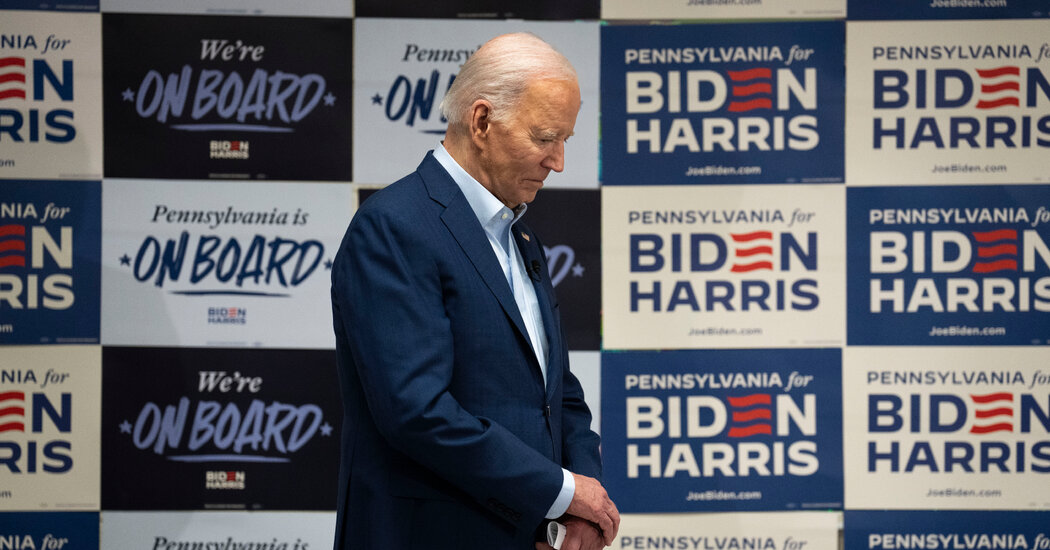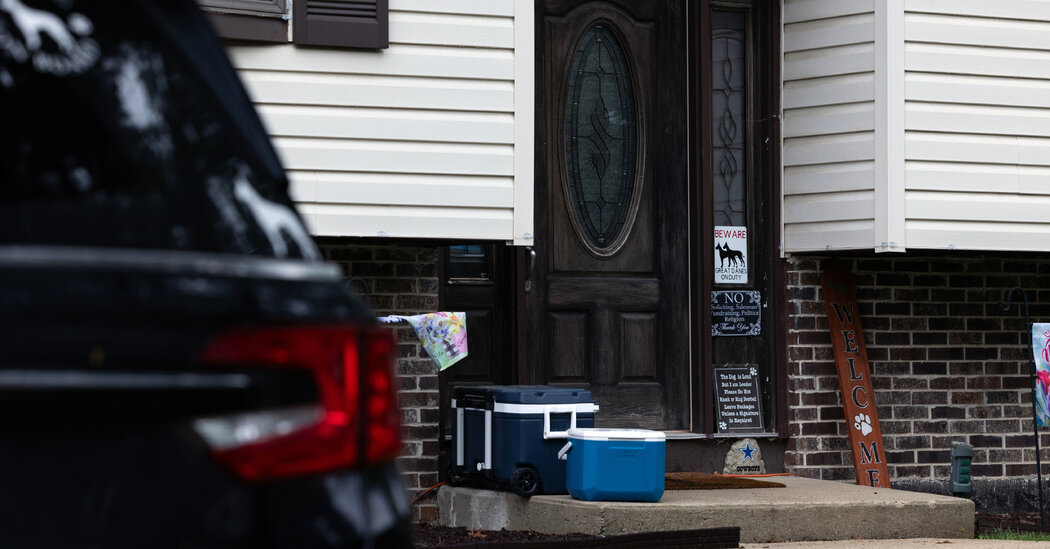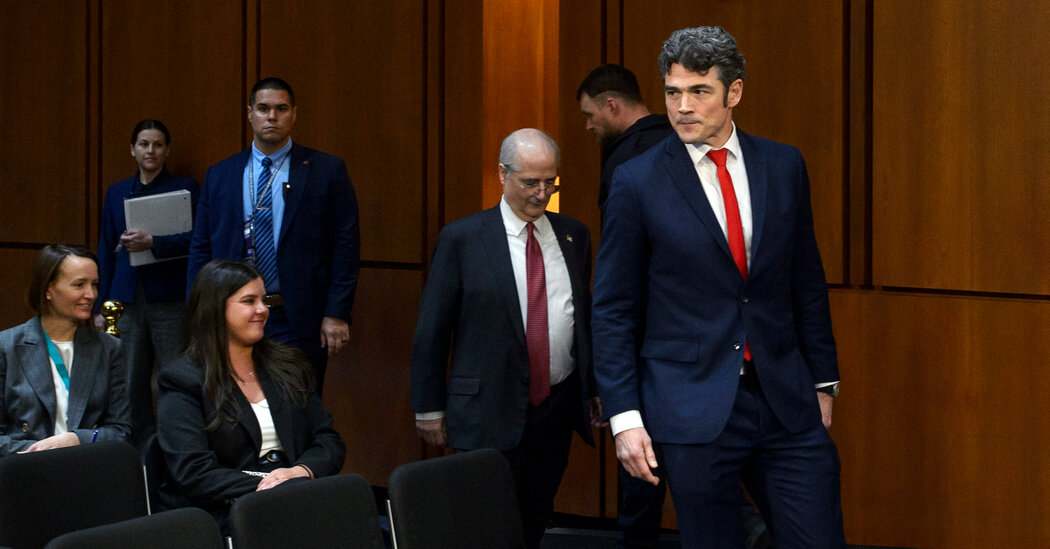Brittney Griner, a center for the Phoenix Mercury, has been detained in Russia in connection with a drug investigation. She had been there playing for the professional basketball team UMMC Ekaterinburg during the W.N.B.A. off-season. The news of her detention on Saturday prompted questions about safety and politics but also about logistics — namely: Why was one of the W.N.B.A.’s best players competing in Russia anyway?
Griner is a seven-time All-Star, and she won a W.N.B.A. championship in 2014 alongside Diana Taurasi, who has also played in Russia. Trading off-season rest for international competition is common among W.N.B.A. players for many personal and professional reasons, but often the most pressing motivation is financial.
Here is a quick look at what drives W.N.B.A. players to play internationally.
Questions You May Have
- Which players compete overseas?
- How much money do W.N.B.A. players earn?
- How much do players make overseas?
- So, is it just about money?
- If they play in the season and the off-season, when do they get a break?
Which players compete overseas?
It could be anyone, from the W.N.B.A.’s best veterans to young players hoping to get extra playing time. About 70 players are believed to be playing for international teams this off-season, with more than a dozen in Russia and Ukraine. There are 144 roster spots across the 12 W.N.B.A. teams. In past years, some W.N.B.A. teams had posted trackers showing players who were competing in China, Israel, Italy, Turkey, Poland, Australia and several other countries.
Connecticut Sun forward Jonquel Jones, who won the Most Valuable Player Award last season, had been playing for UMMC Ekaterinburg in Russia but left after Russia invaded Ukraine. Jones posted on Twitter about airspace restrictions on Wednesday as she was flying out of Russia and said: “Just landed in Turkey and all I want to do is cry. That situation was way more stressful than I realized. Thank you God for always watching over and protecting me.”
Other big-name stars, like Liz Cambage, Breanna Stewart, A’ja Wilson, Sue Bird and Arike Ogunbowale, have played internationally.
How much money do W.N.B.A. players earn?
The maximum salary for the 2022 season is $228,094; the minimum is $60,471.
It’s hard not to notice how small those numbers are compared with salaries in the N.B.A., where even little-used bench players can earn millions. Top players like Stephen Curry, LeBron James and Kevin Durant earn more than $40 million per year. Their seasons are longer (82 regular-season games compared with 36 in the W.N.B.A.), and the men’s league brings in significantly more revenue than the women’s. But the stark disparity has been a constant source of debate in recent years as gender and pay equity have become hot-button topics.
W.N.B.A. players have pushed for higher pay, and in 2020 their union, the Women’s National Basketball Players Association, signed a new collective bargaining agreement that the league said would increase the average salary to six figures — almost $130,000 — for the first time. The year before, in 2019, a player could earn as little as $41,965 and no more than $117,500.
The new contract also created opportunities for players to earn additional money through a marketing program and an in-season tournament.
How much do players make overseas?
It varies among countries, leagues and teams, but players can make several hundred thousand dollars and even more than $1 million. For many players, the bulk of their income is not earned in the W.N.B.A.
Cambage, a four-time All-Star who is from Australia, said recently on “NBA Today” that her pay for overseas teams was five to eight times as much as she earned in the W.N.B.A. Minnesota Lynx forward Napheesa Collier, who won the Rookie of the Year Award in 2019, said going overseas is essential for many players because of the lower W.N.B.A. salaries.
“For a lot of people, it’s not like you make enough to live off that for the rest of the year,” Collier said on her podcast in August, according to the website Just Women’s Sports.
In 2015, UMMC Ekaterinburg reportedly paid Taurasi, the Phoenix Mercury guard, $1.5 million to play for it and not to play in that year’s W.N.B.A. season. “It was a very personal choice,” Taurasi told The New York Times at the time. “My agent said it would be financially irresponsible not to do it.”
International teams tend to have more government and corporate financial support than those in the W.N.B.A., which helps explain the higher salaries.
So, is it just about money?
No, not for everyone.
Playing time is a key incentive for many players. With just 144 roster spots and easy-to-cut contracts in the W.N.B.A., it can be difficult for even talented players to stay on rosters and in the game. Last month, forward Lauren Manis told The Times about signing with teams in Belgium and Hungary after the Las Vegas Aces waived her in 2020 and again in 2021. She has yet to appear in a W.N.B.A. game — the Aces waived her about a month after drafting her in 2020 — but she recently signed a training camp contract with the Seattle Storm.
The W.N.B.A. also draws players from all over the world, so the off-season gives many of them an opportunity to play in their home countries in front of their families and friends. But playing year-round can mean that players are tired when it’s time to return to the W.N.B.A.
If they play in the season and the off-season, when do they get a break?
Sometimes they don’t.
This can be a problem for the players — little rest can lead to injuries — and for the W.N.B.A. The league and its teams have been supportive of the players’ international careers, with notes about their accomplishments included in their website bios, but the new collective bargaining agreement signed in 2020 added steep financial penalties to discourage overseas play.
Many players are not finished with their international seasons before W.N.B.A. training camp begins in April and the start of the season in May. Last season, 55 players were late to training camp, and about a dozen missed their season-openers, according to The Hartford Courant. Players can be fined up to 20 percent of their salaries for missing regular-season games because they are playing in other leagues, and starting next season, they may not be allowed to play at all if they are not back by the start of the regular season.


